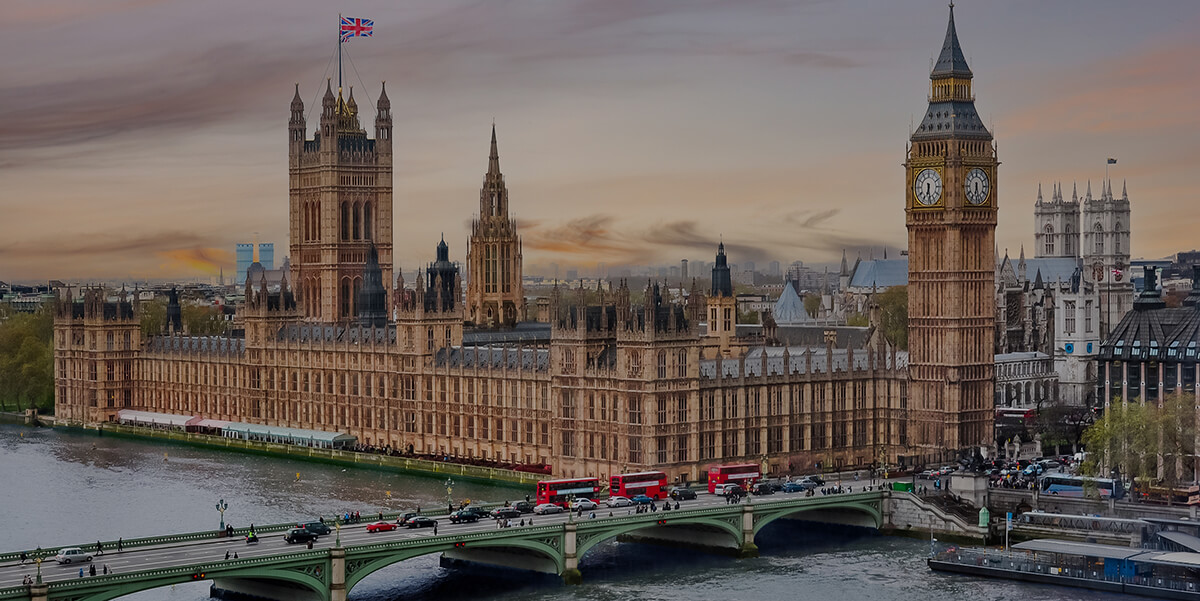business accommodation in London
with all the comforts of home!

business accommodation in London
with all the comforts of home!
At Rooost, we specialise in business Accommodation for your workforce while they are working away from home. We can help you find the Accommodation that ensures your team can enjoy a ‘home-from-home’ experience – and meet your budget!
At Rooost, we specialise in business Accommodation for your workforce while they are working away from home. We can help you find the Accommodation that ensures your team can enjoy a ‘home-from-home’ experience – and meet your budget!
how it works
tell us how many employees need Accommodation
Where you need employee Accommodation

Book your Accommodation to and from dates

Collect
your keys
your keys
Track your
booking on
our web App
booking on
our web App

Phone
support 24/7
with any issues
support 24/7
with any issues
how it works
business accommodation in London
London is the capital and largest city of England and the United Kingdom, with a population of just under 9 million. It stands on the River Thames in south-east England at the head of a 50-mile (80 km) estuary down to the North Sea, and has been a major settlement for two millennia. The City of London, its ancient core and financial centre, was founded by the Romans as Londinium and retains its mediaeval boundaries. The City of Westminster, to the west of the City of London, has for centuries hosted the national government and parliament. Since the 19th century, the name “London” has also referred to the metropolis around this core, historically split between the counties of Middlesex, Essex, Surrey, Kent, and Hertfordshire, which largely comprises Greater London, governed by the Greater London Authority.
As one of the world’s major global cities, London exerts a strong influence on its arts, entertainment, fashion, commerce and finance, education, health care, media, science and technology, tourism, and transport and communications. Its GDP (€801.66 billion in 2017) makes it the largest urban economy in Europe, and it is one of the major financial centres in the world. With Europe’s largest concentration of higher education institutions, it is home to some of the highest-ranked academic institutions in the world—Imperial College London in natural and applied sciences, the London School of Economics in social sciences, and the comprehensive University College London.
With the early 5th-century collapse of Roman rule, London ceased to be a capital and the walled city of Londinium was effectively abandoned, although Roman civilisation continued around St Martin-in-the-Fields until about 450. From about 500, an Anglo-Saxon settlement known as Lundenwic developed slightly west of the old Roman city. By about 680 the city had become a major port again, but there is little evidence of large-scale production. From the 820s repeated Viking assaults brought decline. Three are recorded; those in 851 and 886 succeeded, while the last, in 994, was rebuffed.
London is a major international air transport hub with the busiest city airspace in the world. Eight airports use the word London in their name, but most traffic passes through six of these. The three key airports being:
- Heathrow Airport – based in Hillingdon, West London, was for many years the busiest airport in the world for international traffic and is the major hub of the nation’s flag carrier, British Airways. In March 2008 its fifth terminal was opened.
- Gatwick Airport – south of London in West Sussex, handles flights to more destinations than any other UK airport and is the main base of easyJet, the UK’s largest airline by number of passengers
- Stansted Airport, north-east of London in Essex, has flights that serve the greatest number of European destinations of any UK airport and is the main base of Ryanair, the world’s largest international airline by number of international passengers
- The London Underground, commonly referred to as the Tube or just the Underground, is the oldest and third longest metro system in the world. The system serves 272 stations. and was formed from several private companies, including the world’s first underground electric line, the City and South London Railway.
London has hosted the Summer Olympics three times: in 1908, 1948, and 2012, making it the first city to host the modern Games three times. The city was also the host of the British Empire Games in 1934. In 2017, London hosted the World Championships in Athletics for the first time.
London’s most popular sport is football, and it has seven clubs in the Premier League in the 2022–23 season: Arsenal, Brentford, Chelsea, Crystal Palace, Fulham, Tottenham Hotspur, and West Ham United. Other professional men’s teams in London are AFC Wimbledon, Barnet, Bromley, Charlton Athletic, Dagenham & Redbridge, Leyton Orient, Millwall, Queens Park Rangers and Sutton United. Four London-based teams are in the Women’s Super League: Arsenal, Chelsea, Tottenham and West Ham United.
Three Premiership Rugby union teams are based in London, Harlequins, London Irish and Saracens. Ealing Trailfinders, London Scottish and Richmond play in the RFU Championship; other rugby union clubs in the city include Scottish, Rosslyn Park F.C., Westcombe Park R.F.C. and Blackheath F.C. Twickenham Stadium in south-west London hosts home matches for the England national rugby union team and has a capacity of 82,000 now that the new south stand has been completed.
Leisure is a major part of the London economy. A 2003 report attributed a quarter of the entire UK leisure economy to London at 25.6 events per 1000 people. The city is one of the four fashion capitals of the world, and, according to official statistics, is the world’s third-busiest film production centre, presents more live comedy than any other city, and has the biggest theatre audience of any city in the world.
A 2013 report by the City of London Corporation said that London is the “greenest city” in Europe with 14,164 hectares (35,000 acres) of public parks, woodlands and gardens. The largest parks in the central area of London are three of the eight Royal Parks, namely Hyde Park and its neighbour Kensington Gardens in the west, and Regent’s Park to the north. Hyde Park in particular is popular for sports and sometimes hosts open-air concerts. Regent’s Park contains London Zoo, the world’s oldest scientific zoo, and is near Madame Tussauds Wax Museum. Primrose Hill, immediately to the north of Regent’s Park, at 256 feet (78 m) is a popular spot from which to view the city skyline.
Close to Hyde Park are smaller Royal Parks, Green Park and St. James’s Park. A number of large parks lie outside the city centre, including Hampstead Heath and the remaining Royal Parks of Greenwich Park to the southeast and Bushy Park and Richmond Park (the largest) to the southwest, Hampton Court Park is also a royal park, but, because it contains a palace, it is administered by the Historic Royal Palaces, unlike the eight Royal Parks.
Close to Richmond Park is Kew Gardens, which has the world’s largest collection of living plants. In 2003, the gardens were put on the UNESCO list of World Heritage Sites. There are also parks administered by London’s borough Councils, including Victoria Park in the East End and Battersea Park in the centre. Some more informal, semi-natural open spaces also exist, including the 320-hectare (790-acre) Hampstead Heath of North London, and Epping Forest, which covers 2,476 hectares (6,118 acres) in the east. Both are controlled by the City of London Corporation. Hampstead Heath incorporates Kenwood House, a former stately home and a popular location in the summer months when classical musical concerts are held by the lake, attracting thousands of people every weekend to enjoy the music, scenery and fireworks. Epping Forest is a popular venue for various outdoor activities, including mountain biking, walking, horse riding, golf, angling, and orienteering.
London is one of the leading tourist destinations in the world and in 2015 was ranked as the most visited city in the world with over 65 million visits. It is also the top city in the world by visitor cross-border spending, estimated at US$20.23 billion in 2015. Tourism is one of London’s prime industries, employing 700,000 full-time workers in 2016, and contributes £36 billion a year to the economy. The city accounts for 54% of all inbound visitor spending in the UK. As of 2016 London was the world top city destination as ranked by TripAdvisor users.
In 2015 the top most-visited attractions in the UK were all in London. The top ten most visited attractions were:
- British Museum
- National Gallery
- Natural History Museum (South Kensington)
- Southbank Centre
- Tate Modern
- Victoria and Albert Museum (South Kensington)
- Science Museum
- Somerset House
- Tower of London
- National Portrait Gallery
business accommodation in London
London is the capital and largest city of England and the United Kingdom, with a population of just under 9 million. It stands on the River Thames in south-east England at the head of a 50-mile (80 km) estuary down to the North Sea, and has been a major settlement for two millennia. The City of London, its ancient core and financial centre, was founded by the Romans as Londinium and retains its mediaeval boundaries. The City of Westminster, to the west of the City of London, has for centuries hosted the national government and parliament. Since the 19th century, the name “London” has also referred to the metropolis around this core, historically split between the counties of Middlesex, Essex, Surrey, Kent, and Hertfordshire, which largely comprises Greater London, governed by the Greater London Authority.
As one of the world’s major global cities, London exerts a strong influence on its arts, entertainment, fashion, commerce and finance, education, health care, media, science and technology, tourism, and transport and communications. Its GDP (€801.66 billion in 2017) makes it the largest urban economy in Europe, and it is one of the major financial centres in the world. With Europe’s largest concentration of higher education institutions, it is home to some of the highest-ranked academic institutions in the world—Imperial College London in natural and applied sciences, the London School of Economics in social sciences, and the comprehensive University College London.
With the early 5th-century collapse of Roman rule, London ceased to be a capital and the walled city of Londinium was effectively abandoned, although Roman civilisation continued around St Martin-in-the-Fields until about 450. From about 500, an Anglo-Saxon settlement known as Lundenwic developed slightly west of the old Roman city. By about 680 the city had become a major port again, but there is little evidence of large-scale production. From the 820s repeated Viking assaults brought decline. Three are recorded; those in 851 and 886 succeeded, while the last, in 994, was rebuffed.
London is a major international air transport hub with the busiest city airspace in the world. Eight airports use the word London in their name, but most traffic passes through six of these. The three key airports being:
- Heathrow Airport – based in Hillingdon, West London, was for many years the busiest airport in the world for international traffic and is the major hub of the nation’s flag carrier, British Airways. In March 2008 its fifth terminal was opened.
- Gatwick Airport – south of London in West Sussex, handles flights to more destinations than any other UK airport and is the main base of easyJet, the UK’s largest airline by number of passengers
- Stansted Airport, north-east of London in Essex, has flights that serve the greatest number of European destinations of any UK airport and is the main base of Ryanair, the world’s largest international airline by number of international passengers
- The London Underground, commonly referred to as the Tube or just the Underground, is the oldest and third longest metro system in the world. The system serves 272 stations. and was formed from several private companies, including the world’s first underground electric line, the City and South London Railway.
London has hosted the Summer Olympics three times: in 1908, 1948, and 2012, making it the first city to host the modern Games three times. The city was also the host of the British Empire Games in 1934. In 2017, London hosted the World Championships in Athletics for the first time.
London’s most popular sport is football, and it has seven clubs in the Premier League in the 2022–23 season: Arsenal, Brentford, Chelsea, Crystal Palace, Fulham, Tottenham Hotspur, and West Ham United. Other professional men’s teams in London are AFC Wimbledon, Barnet, Bromley, Charlton Athletic, Dagenham & Redbridge, Leyton Orient, Millwall, Queens Park Rangers and Sutton United. Four London-based teams are in the Women’s Super League: Arsenal, Chelsea, Tottenham and West Ham United.
Three Premiership Rugby union teams are based in London, Harlequins, London Irish and Saracens. Ealing Trailfinders, London Scottish and Richmond play in the RFU Championship; other rugby union clubs in the city include Scottish, Rosslyn Park F.C., Westcombe Park R.F.C. and Blackheath F.C. Twickenham Stadium in south-west London hosts home matches for the England national rugby union team and has a capacity of 82,000 now that the new south stand has been completed.
Leisure is a major part of the London economy. A 2003 report attributed a quarter of the entire UK leisure economy to London at 25.6 events per 1000 people. The city is one of the four fashion capitals of the world, and, according to official statistics, is the world’s third-busiest film production centre, presents more live comedy than any other city, and has the biggest theatre audience of any city in the world.
A 2013 report by the City of London Corporation said that London is the “greenest city” in Europe with 14,164 hectares (35,000 acres) of public parks, woodlands and gardens. The largest parks in the central area of London are three of the eight Royal Parks, namely Hyde Park and its neighbour Kensington Gardens in the west, and Regent’s Park to the north. Hyde Park in particular is popular for sports and sometimes hosts open-air concerts. Regent’s Park contains London Zoo, the world’s oldest scientific zoo, and is near Madame Tussauds Wax Museum. Primrose Hill, immediately to the north of Regent’s Park, at 256 feet (78 m) is a popular spot from which to view the city skyline.
Close to Hyde Park are smaller Royal Parks, Green Park and St. James’s Park. A number of large parks lie outside the city centre, including Hampstead Heath and the remaining Royal Parks of Greenwich Park to the southeast and Bushy Park and Richmond Park (the largest) to the southwest, Hampton Court Park is also a royal park, but, because it contains a palace, it is administered by the Historic Royal Palaces, unlike the eight Royal Parks.
Close to Richmond Park is Kew Gardens, which has the world’s largest collection of living plants. In 2003, the gardens were put on the UNESCO list of World Heritage Sites. There are also parks administered by London’s borough Councils, including Victoria Park in the East End and Battersea Park in the centre. Some more informal, semi-natural open spaces also exist, including the 320-hectare (790-acre) Hampstead Heath of North London, and Epping Forest, which covers 2,476 hectares (6,118 acres) in the east. Both are controlled by the City of London Corporation. Hampstead Heath incorporates Kenwood House, a former stately home and a popular location in the summer months when classical musical concerts are held by the lake, attracting thousands of people every weekend to enjoy the music, scenery and fireworks. Epping Forest is a popular venue for various outdoor activities, including mountain biking, walking, horse riding, golf, angling, and orienteering.
London is one of the leading tourist destinations in the world and in 2015 was ranked as the most visited city in the world with over 65 million visits. It is also the top city in the world by visitor cross-border spending, estimated at US$20.23 billion in 2015. Tourism is one of London’s prime industries, employing 700,000 full-time workers in 2016, and contributes £36 billion a year to the economy. The city accounts for 54% of all inbound visitor spending in the UK. As of 2016 London was the world top city destination as ranked by TripAdvisor users.
In 2015 the top most-visited attractions in the UK were all in London. The top ten most visited attractions were:
- British Museum
- National Gallery
- Natural History Museum (South Kensington)
- Southbank Centre
- Tate Modern
- Victoria and Albert Museum (South Kensington)
- Science Museum
- Somerset House
- Tower of London
- National Portrait Gallery
bespoke
service
Our team of experienced staff will provide a bespoke service that will ensure you find suitable Accommodation for your time away from home.
We offer a wide range of services, from long-term stays to short-term stays, so no matter what type of Accommodation you need, we can help!
If you require additional services, such as easy access to transport links, we can hand-pick properties according to your requirements.
If you require additional services, such as easy access to transport links, we can hand-pick properties according to your requirements.

bespoke service
Our team of experienced staff will provide a bespoke service that will ensure you find suitable Accommodation for your time away from home.
We offer a wide range of services, from long-term stays to short-term stays, so no matter what type of Accommodation you need, we can help!
If you require additional services, such as easy access to transport links, we can hand-pick properties according to your requirements.

serviced apartments and corporate housing experts
We understand the importance of finding contractor Accommodation services that can provide you with the quality, convenience and affordability you need. That’s why we have a range of suitable Accommodation across the country that is high-quality and affordable.
fully furnished serviced apartments
self-catering facilities
various transport links
dedicated account manager